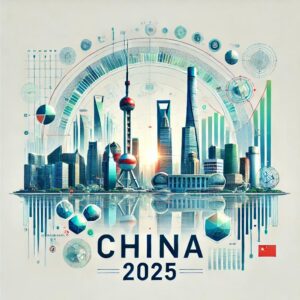January 19, 2015 marks the date of the death of the VIE investment structure in China. On this day, China’s State Council issued a discussion draft of legislation setting out the plan for overhauling China’s Chinese foreign investment legal regime. The new system is set out in the PRC Investment Law Discussion Draft (the “Draft”), a massive document in 178 Articles and 11 Chapters. The underlying philosophy of the Draft is explained in the Explanation of the PRC Investment Law (the “Explanation”).
The Draft makes clear that the State Council understands how VIEs work and that their sole function is to evade China’s legal requirements. The Draft makes clear that such evasion is illegal and will be prohibited upon the effective date of the new investment law. The new system will work as follows:
1. The nationality of any business entity will be determined by its place of formation. The nationality of shareholders, directors or management is not relevant. Thus, a Cayman Island corporation owned and controlled by Chinese citizens is still foreign for purposes of the law. A Chinese company formed by such foreign investors is therefore treated as a foreign owned entity.
2. The Draft introduces the concept of “effective control”, a principle borrowed directly from the VIE structure. The Draft provides that any Chinese entity effectively controlled by a foreign owned entity will be treated as a foreign entity. This means that if foreign entity participation in a sector of the economy is prohibited, this prohibition extends to Chinese entities effectively controlled by foreign investors.
3. It is illegal for an entity effectively controlled by a foreign owned entity to operate in sectors of the Chinese economy that are restricted or prohibited to foreign investors. In other words, the restriction or prohibition applies to effectively controlled Chinese companies in exactly the same way that it applies to a foreign owned entity of any kind. Any effectively foreign controlled Chinese entity that enters into a restricted/prohibited sector is in violation of law. The operations will be shut down and penalties will be imposed as provided by law.
The core of the VIE is structure is that a foreign owned entity (a WFOE) effectively controls a Chinese owned entity through an elaborate series of contracts. Without such effective control, the foreign owner of the VIE is not permitted to consolidate the earnings of the Chinese entity into its books.
The effect of the Draft is to kill the VIE structure as an investment vehicle in China. Even if the Draft is never adopted, for the future at least, the VIE structure is dead because it is now clear that the State Council understands how the VIE structure works as a contractual device and it understands that the only reason VIEs exist is to evade the clear requirements of Chinese law. Most importantly, it is also clear that the State Council has concluded this behavior is wrong and it will not be tolerated in the future. So it does not matter whether or not the Draft is adopted in its current form.
A large number of very large companies operate in China’s Internet and telecom sector as VIEs. Baidu, Sina and Alibaba are only a few of the hundreds of VIEs currently operating in China. These VIEs control China’s Internet, e-commerce and cloud computing sectors. They are the only significantly large privately owned companies in China.
Yet, these highly capitalized, powerful companies are all operating illegally, but with the tacit acquiescence of China’s regulatory authorities. What is to be done about the existing VIE entities in China that will be rendered illegal if the Draft is adopted in its current form?
The VIEs have seen this coming, and beginning in 2013, Robin Lee of Baidu led the charge in seeking to have then existing VIEs be formally declared legal under Chinese law. Lee argued that the State Council should declare VIEs legal under Chinese law if Chinese citizens control management of the foreign owned entity. Lee did not propose that the limitations on foreign participation in the Internet sector be removed. His plea was simply that his particular device be declared legal. After Lee made his plea, other owners of large Internet and telecom VIEs joined in to propose various “get out of jail free” techniques to leave them in control of an otherwise closed sector.
From a legal standpoint, the proposals of Lee and others put the Chinese government in a very difficult position. If the Chinese government decides that VIEs are legal, then open violation of Chinese law is tolerated. On the other had, to declare already existing VIEs to be illegal would involve acting against large and successful Chinese companies in critical sectors such as the Internet, e-commerce and telecommunications. Here is what we know so far on how the regulators intend to proceed:
1. Article 158 of the Draft states that the issue of what to do about existing VIEs will be resolved in accordance with the Explanation.
2. Article 3.2 provides the following “solution”:
-
- A principle of “actual control” will be adopted. A Chinese entity under actual control of foreign investors will be treated as foreign. A foreign entity under actual control of Chinese investors will be treated as Chinese. How this analysis will be performed is not explained.
- The Chinese government will not provide a blanket statement that existing VIEs comply with Chinese law. In this sense, the request from Lee and others has been denied.
- The Chinese government will decide on a case by case basis whether to allow foreign controlled Chinese entities to continue to operate.
- If a specific permit is needed to operate in a sector, that permit must be obtained.
This means the State Council has punted on the difficult issue of what to do about existing VIE entities. We can imagine the State Council saying: You guys created the problem by turning a blind eye to this illegal activity. Now you need to figure out what to do. However, by directly citing the “effective control” standard, the State Council has provided the various regulators with an escape from their difficult situation.
The stock response to this situation is that Chinese regulators will “knuckle under” and provide the required licenses to existing VIE operators. Virtually everyone says there is no way China’s regulators will shut down Baidu, Sina, Alibaba and the other major PRC VIE entities. I agree with this.
There are, however, a number of problems for the regulators if they knuckle under and grant a get out of jail free pass to existing VIE entities, including the following:
1. It has formally acknowledged that the VIE structure violates Chinese law. If existing VIEs are permitted to continue operating, China’s regulators will be rewarding open violators of its laws. This weakens the legitimacy of those regulators.
2. Assume Baidu and others maintain their license to operate with foreign funds in a restricted sector in violation of Chinese law. Now consider what happens if other Chinese “entrepreneurs” want to do the same thing. Now that the escape hatch has been opened for existing VIEs, a similar workaround should be provided for other Chinese entrepreneurs. If this escape mechanism is not provided, then Baidu (Robin Lee) and other existing VIEs will have been granted even more benefits than they even requested.
3. The solution being proposed is something like the following. The Chinese government will use the effective control analysis. If a foreign company is effectively controlled by Chinese investors, then for PRC regulatory purposes, that company will be treated as a Chinese company. This Chinese controlled company will then be permitted by to raise funds in overseas capital markets. Under this approach, a VIE will not be necessary, since the foreign parent will be treated as Chinese for PRC restricted/prohibited industry analysis. There will therefore be no need to rely on the complex and questionably enforceable set of contracts central to the VIE structure
Though this solves one problem, it raises the following other issues:
1. Companies raising funds on foreign markets do so as public companies. Public companies operate on behalf of their shareholders and the shareholders exercise effective control over management of the company. Taking away shareholder control in favor of management by Chinese nationals would therefore violate basic principles of public company law and policy. This is why the Hong Kong stock exchange recently refused to host Baidu’s IPO. Though it may be legally possible to impose this kind of restriction on nationality of management on a public company listed on a United States exchange, the restrictions would need to be fully disclosed and, if properly disclosed, it is not clear whether such stock offerings would be attractive to investors.
2. This approach puts the Chinese government in the business of assessing complex corporate control structures implemented under the laws of foreign countries. It is not clear it has the expertise to analyze complex corporate structures that would challenge the analytic skills of even the most seasoned corporate lawyers.
3. Chinese companies want to be able to raise money in foreign markets to fund business sectors closed to foreign businesses. It is not clear whether foreign governments that regulate the capital and trade markets will find this approach be acceptable.
The situation for now is very messy, but we can conclude the following:
1. A foreign entity effectively controlled by Chinese investors will be treated as Chinese with respect to China’s negative list. How this effective control standard will be imposed is not clear. As illogical as it seems, the WFOE and its parent will be treated as Chinese controlled for PRC regulatory purposes.
2. Existing VIEs will be given a chance to convert to a model where their WFOE directly holds the required license.
a. The VIE will terminate.
b. The WFOE will have the opportunity to apply for the applicable license directly from the applicable regulator. If granted, that is the end of process. If not granted, then the VIE must terminate. Most people don’t think this will happen, but that is just a guess.
In this way, the awkward and unenforceable contractual method (VIE) of control will be eliminated. If possible legally, the WFOE will hold the license directly. This will eliminate the uncertainty over legality and the uncertainty over who owns what. But this system will mean that foreign capital markets and investors will be required to accept the listing of public stock by a company that is in fact controlled not by its shareholders but by its Chinese promoters. In a way, these entities will be a type of “reverse” VIE. It may solve the problem for the Chinese side but it is not clear it solves the problem for foreign investors in the negative list side of the Chinese market.
For more on VIEs, check out China VIEs. Avoid, Avoid, Avoid.

























